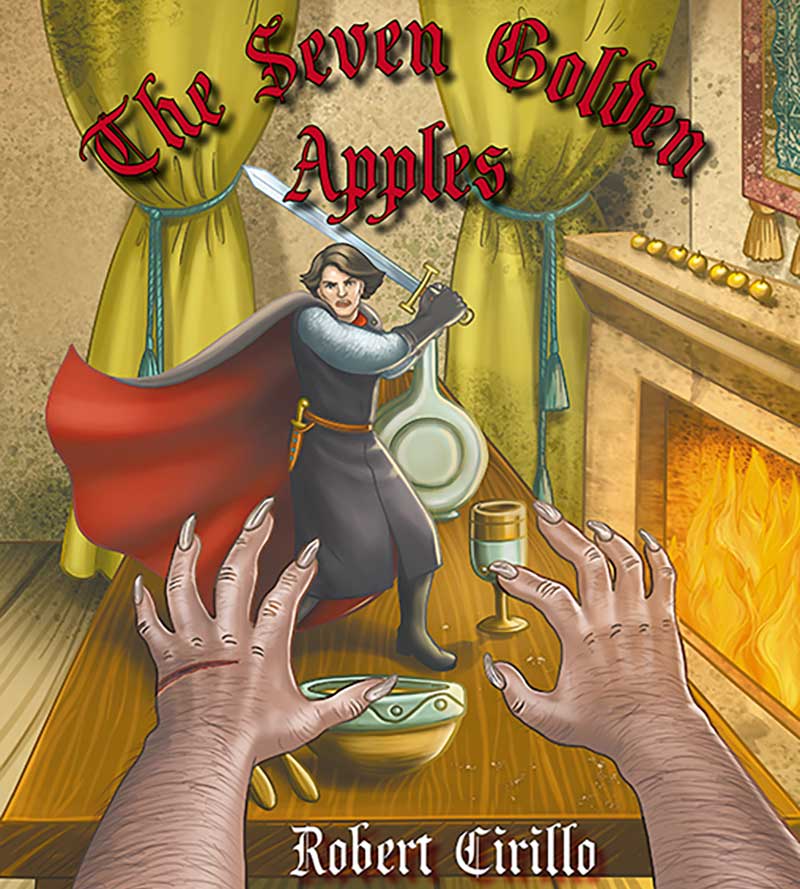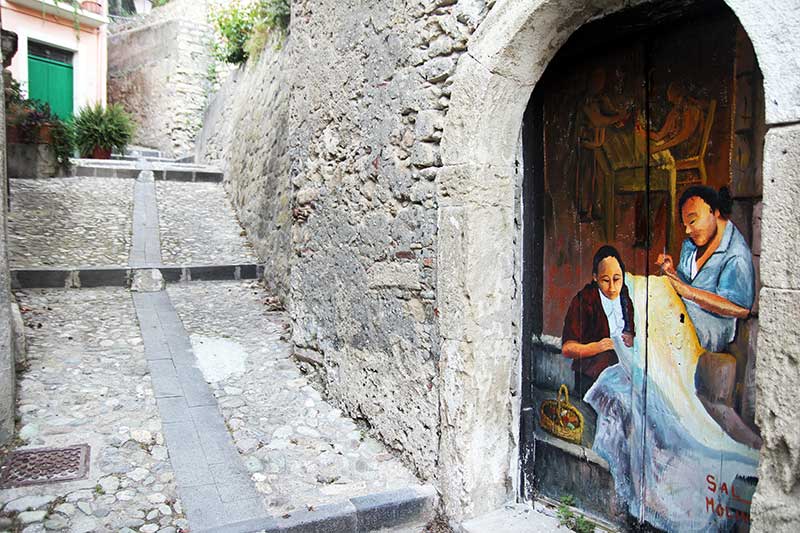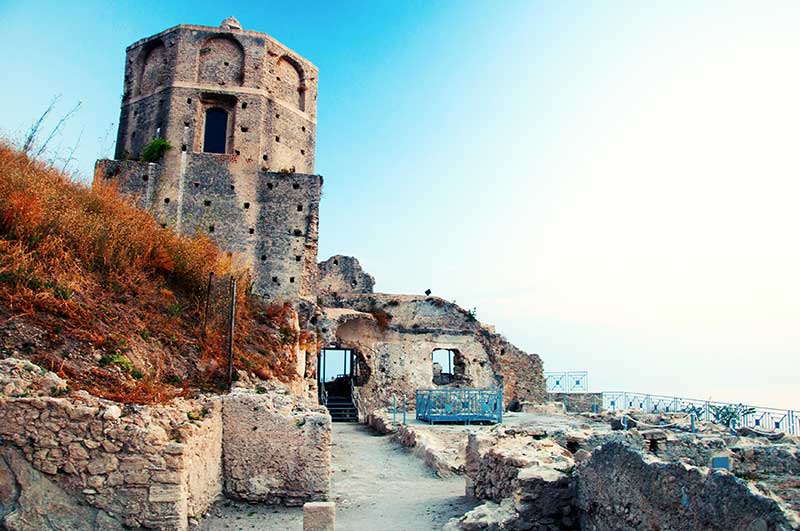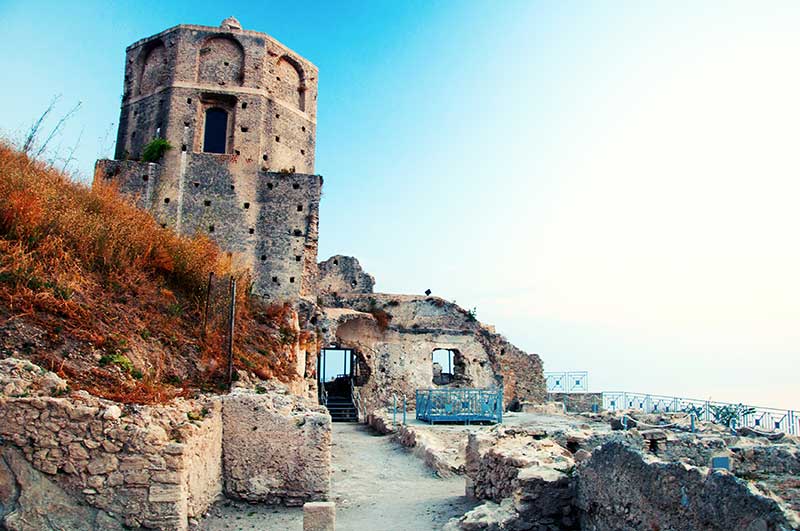Every child grows up with a favorite fairytale and it’s not always a polished Disney iteration of some traditional story nor, in fact, a classic like Red Riding Hood, The Little Mermaid or Hansel and Gretel. At times, our childhood memories are tied to something much simpler and far more personal, something that belongs uniquely and preciously only to storytellers and their audience. Fantastic tales of dreams and times past, often set in distant worlds steeped, however, in recognizable traditions that lead to one’s roots.
Memories of such tales are treasures for each and everyone of us, but they can become much more, if we know our way with words and have a knack for research.

Robert Cirillo’s The Seven Golden Apples book cover
This is the case with Robert Cirillo, with whom L’Italo Americano had the pleasure to talk in these early days of summer. Robert is the author of The Seven Golden Apples, published by Windjammer Adventure in the US, and Falco Editore in Italy. The Seven Golden Apples is a medieval tale of princes, queens and kings, set in the fictional Kingdom of Pumaria. Although it is a fantastic adventure story that reminds one of Harry Potter, the Brothers Grimm and Lord of the Rings, The Seven Golden Apples is more than just a fairytale. It is a symbol of love and tradition in the Cirillo family and a means of reconnecting them to their Italian heritage.
Robert tells us more about the story, how it came into being and about the amazing discoveries made thanks to his personal research into the subject.

A characteristic alley of the village where Robert Cirillo conducted his research on the legend of the seven golden apples © Danilo Mongiello | Dreamstime.com
The writing process always begins with an epiphany: when did you realize you needed to write The Seven Golden Apples down?
I have always had a reputation as a storyteller and since I don’t have children of my own I like to tell stories to other people’s children. The Seven Golden Apples has always been one of the most popular stories, and both the children and their parents seem to want to hear it not just once but again and again. Every once in a while, my siblings try to tell the story to their children but they don’t really remember it that well. (Since I am the oldest of six children, I guess I heard the story more than anyone else.) When my father died in 2006 I realized that the story would die with him if I did not write it down.

Robert Cirillo’s The Seven Golden Apples is a Medieval tale taking place in a fictional kingdom, with a castle that may have looked like this
Your great-grandfather was the one who began telling the story of the seven golden apples to his children, starting a family tradition. You carried out extensive research trying to find out where this tale actually came from and the results were quite surprising: can you tell us more about this?
My father’s maternal grandfather was the one who told the story to my father. The research that I did was sparked by an amazing coincidence. We had always just assumed that our great-grandfather, Gaetano Caruso, was the author of the story. Then, around 2003 or 2004, my neighbor in Amsterdam knocked on my door. He had just been to a flea market and had picked up a little paperback book of Italian folktales. He said, “I saw this and thought of you.” I immediately started reading the stories. One of them was called Baffi di rame, which means “copper-colored mustache.” This was the nickname of the main protagonist of the story. I was downright shocked that this story had a couple of plot elements that were very similar to passages in The Seven Golden Apples. This was an awakening for me. I realized, as I should have all along, that fairy tales have different variations, and that I would need to do some research. It was this that caused me to start reading voluminously and to visit the birthplace of Gaetano and talk to people.

A view of the home village of Robert Cirillo’s great-grandfather © Stefano Clemente | Dreamstime.com
So, your great-grandfather may have been, in the end, the creator of this fairytale, even if probably inspired by traditional lore. Writing down The Seven Golden Apples, then, is a bit like giving voice to him. Was writing this book a very emotional process?
I regret very much that I never met my great-grandfather. My father and my father’s sister always spoke very warmly of him. He had a reputation for being a great storyteller and I feel that l may have inherited that from him. So, yes, it was an emotional experience for me to keep the tradition of my great-grandfather alive and I very definitely felt his presence as I wrote the story.

Imagine those towers at their peak: that was the time of the seven golden apples © Yuriy Brykaylo | Dreamstime.com
There is another very interesting aspect of your work, the research you conducted on the legend of The Seven Golden Apples, which, we saw, had rather surprising results. It must have been a very interesting journey: have you ever thought to write it all down, maybe for an article or an essay?
I did in fact write an essay about a trip that I took to Calabria in 2014 to visit Gaetano’s birthplace. The trip turned out to be a hilarious comedy of errors and I had to go back a second time. I titled the essay Chasing Wild Geese in Calabria: The Happiness of Pursuit. I have never published the essay, which is around 6.500 words long, but excerpts will be published by Italian American Press. They will also list my book on their website.
The Seven Golden Apples is a fantasy fairytale: does it have a moral ending, like many of them do?
It is hard to talk about a true moral of the story, however there are some human qualities that are emphasized, like courage, stubborn determination, love and loyalty within a family, compassion, and generosity. I even bring some feminism into the story that was lacking in the original version. In the original version the rulers are kings. In my version one of the rulers is a queen and I use the word “queendom.”
Last but not least: did working on The Seven Golden Apples change your perspective on Italy and on your own identity?
I had always felt close to my Italian roots and unlike so many Italian-Americans I took the trouble to learn the language and to meet relatives in Italy and speak with them in Italian. I have always enjoyed Italian food, music, literature (in the original language) and cinema, and I, of course, love the country and the people. I must say, though, that when I visited the birthplace of my great-grandfather I came to identify even more closely with my Calabrian roots. The person who took me around to meet people in the village of my ancestors, who is now a close friend, always introduced me by saying, “Questo è Robert. È americano ma è uno di noi.” That was of course exhilarating.






























